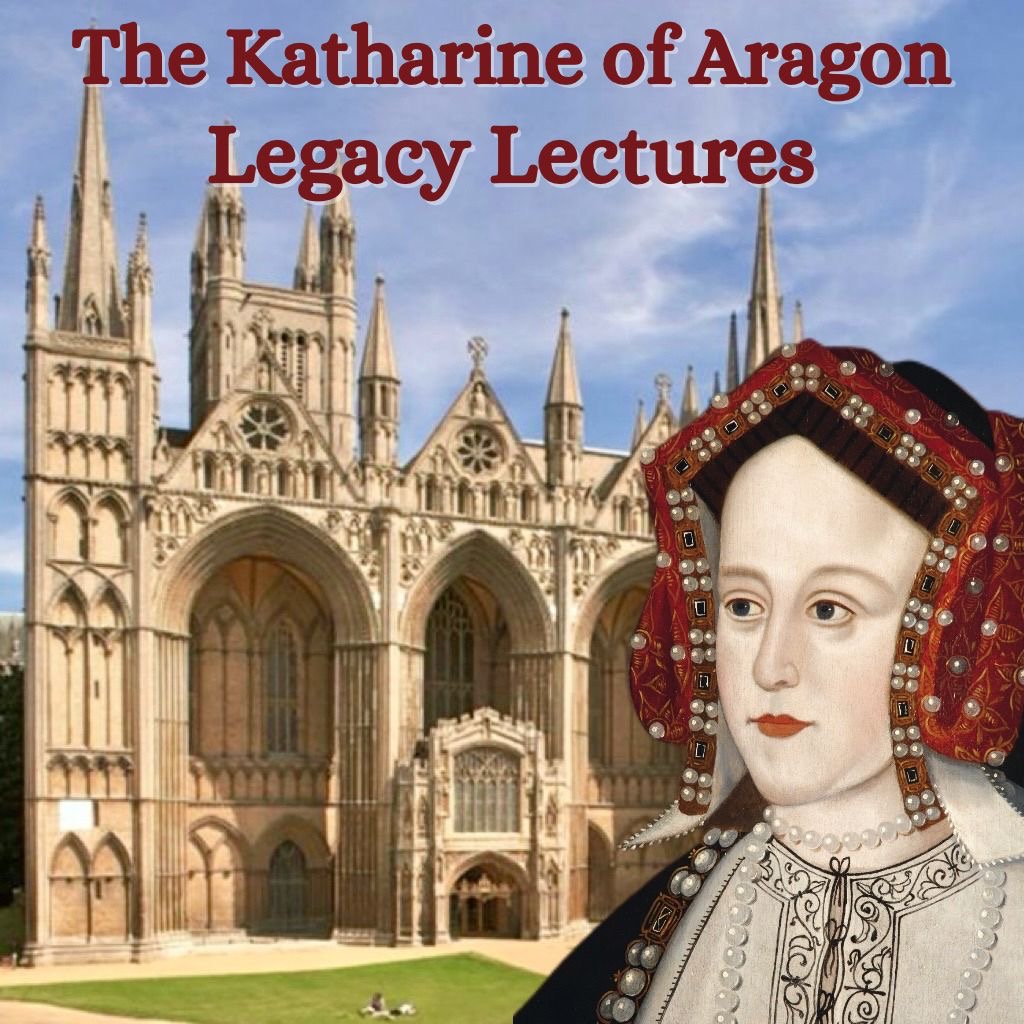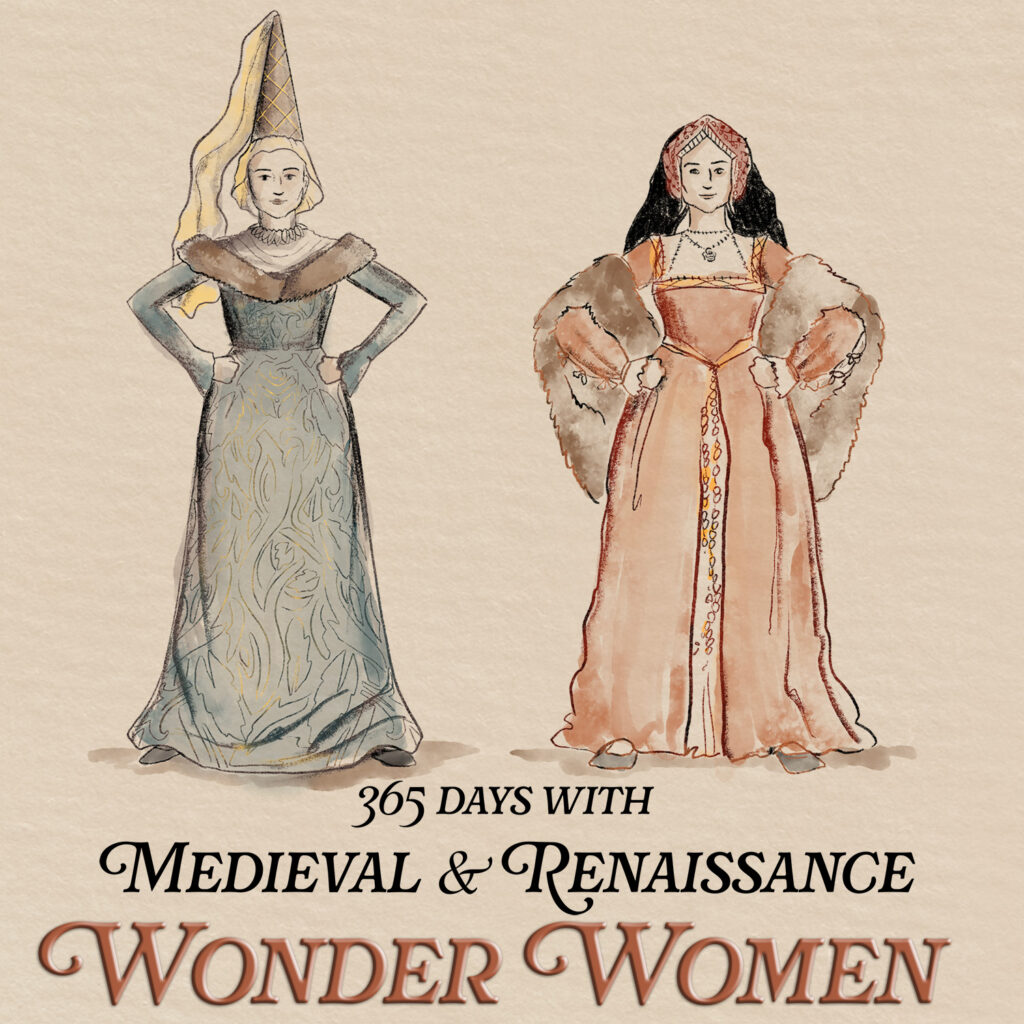Henry Tudor, the future Henry VII, has been called the most unlikely King of England. Yet his rise from obscurity was foretold by the bards, and by 1485, the familial bloodbath of the Wars of the Roses left Henry as the sole adult Lancastrian Claimant to the throne. The hunchback usurper Richard III desperately wanted him dead, and in his exile Henry Tudor was left with no choice. He either invaded England or faced being traded to Richard to meet certain death.
Henry’s father Edmund Tudor, Earl of Richmond, was the son of a Queen of England, sister to the King of France, and of an obscure Welsh court servant, who had been born in secrecy, away from court. Edmund’s death at the beginning of the Wars of the Roses left Henry to grow up in almost constant danger, imprisonment and exile. In 1485, his ‘ragtag’ invading army at Bosworth faced overwhelming odds, but succeeded.
Henry went on to become England’s wisest and greatest king, but it would be his son Henry VIII and granddaughter Elizabeth I who would take all the credit.

The colourful life and times of Henry VIII have been covered countless times in books, documentaries, films and several TV series. The life and background of his father, Henry VII appears to provoke less curiosity with, at times, Henry disdainfully being written off as a ‘miserly usurper’ with a tenuous claim to the English Throne.
In Henry VII The Maligned Tudor King, Terry Breverton provides a comprehensive and enthusiastic study of the man who, after spending a significant portion of his early life in exile and on the run from two Yorkist monarchs, raised an army to invade his homeland and ultimately fought for and won the Crown of England.
The study opens with an illustration of Henry’s lineage, walking the reader through his descent from the Welsh Tudors, the Beauforts and his Valois ancestry, providing the reader with a clear appreciation of his claim to the English throne. The book is divided into 9 chapters, examining, in detail, the different periods of Henry’s life starting with his troubled childhood, his escape and exile through to his invasion of England and his victory over Richard III at the Battle of Bosworth, his life and achievements as King, culminating in his last days in 1509.
Born in 1457 Henry was the only son of Lady Margaret Beaufort, Countess of Richmond, daughter and sole heiress of John Beaufort (Duke of Somerset) and Edmund Tudor, 1st Earl of Richmond (half-brother to Henry VI). When Edmund Tudor died before Henry was born, the care and protection of Henry and his young mother fell to Edmund’s younger brother, Jasper Tudor, Earl of Pembroke. It was a role that Jasper would take very seriously to the end of his days.
Henry’s world first changed significantly when Edward IV took the Crown from Henry VI in 1461. His uncle, Jasper Tudor’s title was taken from him and bestowed upon the Yorkist William Herbert along with the guardianship of Margaret and Henry. Jasper was forced into exile abroad. Henry stayed with William Herbert until William’s execution in 1469. Henry VI was then restored to the crown in 1470, whereupon Jasper Tudor returned from exile. However, the reprieve was short-lived. Edward IV regained the throne in 1471 and Henry was forced to flee to Brittany where he spent the majority of the next 14 years of his life. Terry Breverton highlights that as the senior, male Lancastrian claimant to the throne, despite repeated attempts by first Edward IV and then Richard III to extradite him from Brittany and then France, Henry continually managed to avoid capture and execution.
By the reign of Richard III, Margaret Beaufort was doing all within her power to promote her son as Lancastrian heir as an alternative to Richard III. Richard had seized the throne after the death of his brother Edward and following the disappearance of the princes in the Tower, cracks began to form in Richard’s support network. Henry subsequently gathered an army made up of Lancastrians, Bretons, Scots and French mercenaries, invaded England and ended Richard III’s reign at the Battle of Bosworth in 1485.
Once King, Henry took the prudent step of marrying Elizabeth of York, daughter of Elizabeth Woodville and Edward IV. The marriage had been pre-arranged and effectively united the houses of Lancaster and York, ending the Wars of the Roses.
Terry Breverton then documents Henry’s new life as King, including his documented movements throughout his entire reign. It is clear from these records that the King set immediately to work, spending an astonishing amount of time on the road learning as much as he could about his realm and staying with his subjects throughout the length and breadth of the Country. Henry was extremely devout and he and his family made numerous pilgrimages throughout his life to pilgrimage sites across the Country such as Walsingham in Norfolk. It is here during Henry’s travels to Norfolk we see a mention of the Boleyn family who were then living at Blickling, Norfolk. Henry visited them in August 1498 prior to travelling on to Walsingham.
During Henry’s reign he personally went to great pains to improve England’s financial stability and made changes to improve the taxation system. In addition, his approach to foreign policy was cautious with Henry preferring to negotiate alliances, commercial treaties and truces with other countries rather than wage expensive wars. By negotiating foreign alliances, he also sought to further consolidate his own power.
Throughout the book examples are given which show Henry to be a humane and stabilising ruler. However, he was unfortunately to suffer great personal losses during his life. Terry Breverton illustrates that from the time the King was 28 to his own demise aged 52 he was predeceased by 113 people made up of his own family, friends and loyal comrades. These are fully documented at a chapter at the end of the book aptly named ‘The Tragedy of the Final Years’. It is suggested that these losses, especially that of his son, Arthur, and wife, Elizabeth, shortly after, were to have a profoundly weakening and lasting effect on Henry’s physical and mental health right up until his death in 1509.
Throughout the book Terry Breverton is as clear in his admiration for Henry as he is for his disdain for Richard III, referring to him frequently as ‘the usurper’. He is equally as clear in his belief that Richard III had the most to gain from the deaths of the ‘Princes in the Tower’. This is an extremely well debated topic, and some historians would place Richard, Henry and his mother firmly in the list of potential suspects. However, Terry Breverton has crafted a wealth of incredibly valuable detail in this book which will entertain the reader whether a Ricardian, a Henrician or completely new to this period of history. The reader shares Henry’s journey from relative obscurity to a victorious King of England. Along the way, many characters are introduced in the pages who will go on to become infamous in the machinations of the Tudor Court. None of these, it seems, will have achieved as much for their Country in his or her lifetime as the wise, industrious Henry VII, founding father of the Tudor era.

















Latest Comments